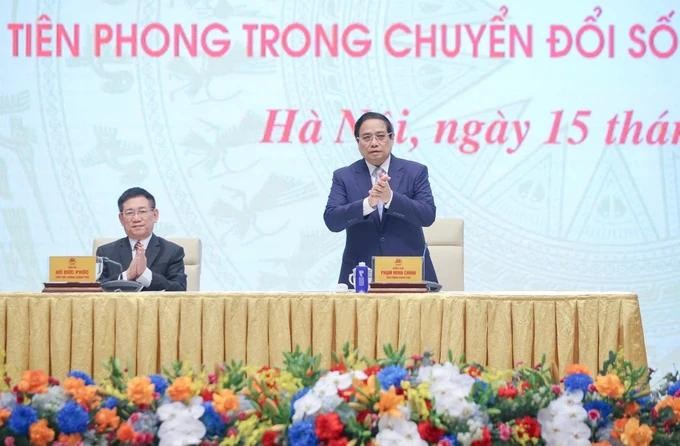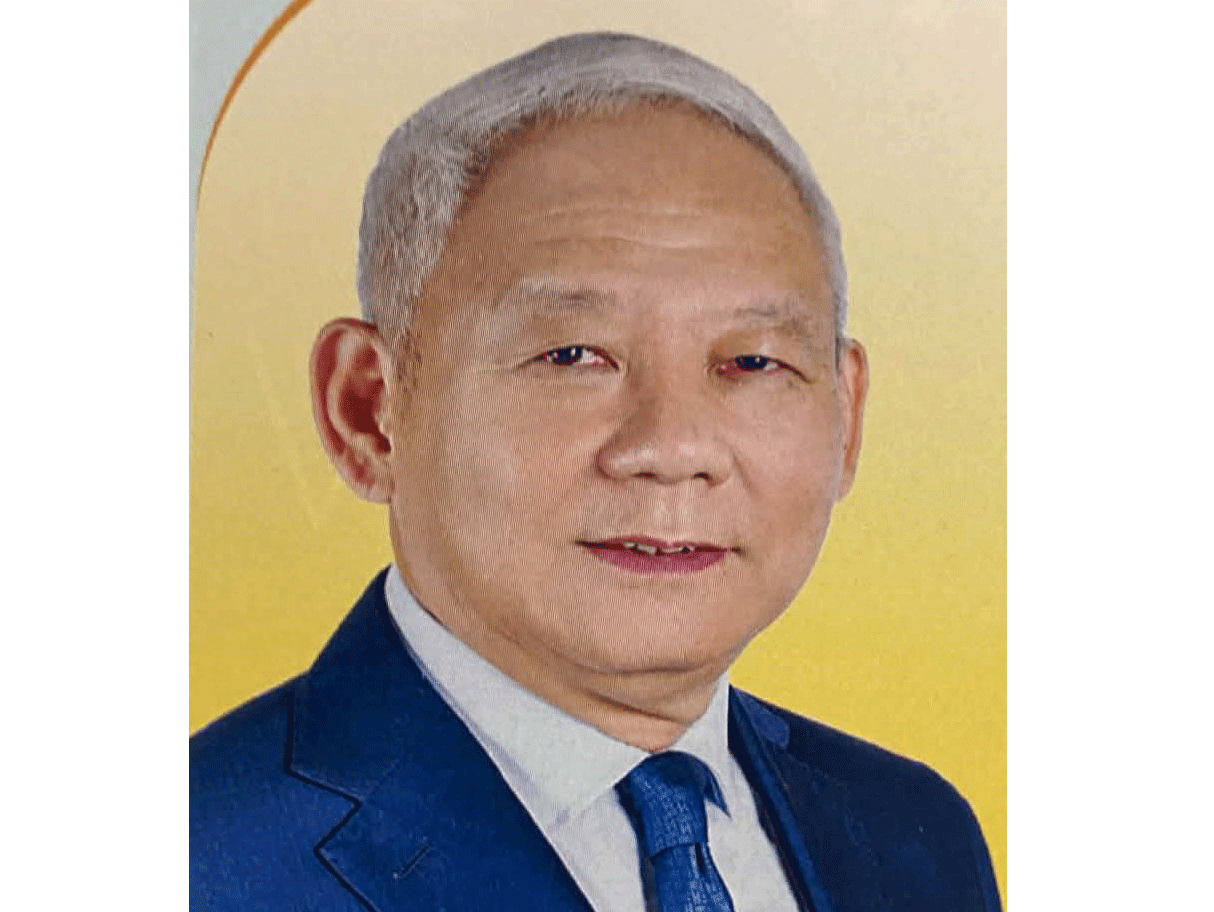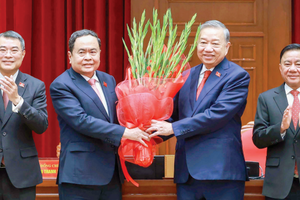At the Government headquarters, Prime Minister Pham Minh Chinh yesterday chaired a conference in which the Prime Minister worked with state-owned enterprises (SOEs) on the theme of pioneering digital transformation and promoting growth. The conference was attended by representatives of 68 SOEs operating in important sectors of the economy.

This marks Prime Minister Pham Minh Chinh’s second recent meeting with the SOE sector, following the initial session on February 27. The engagement underscores the Government’s heightened focus on the pivotal role of SOEs amid the rapidly evolving, complex, and unpredictable global economic landscape, where risks stemming from trade conflicts are becoming increasingly pronounced.
During the conference, Deputy Minister of Finance Nguyen Duc Tam reported that Vietnam currently has 671 SOEs, including 473 enterprises wholly owned by the State and 198 with State capital ownership exceeding 50 percent.
SOEs currently hold total assets exceeding VND5.6 quadrillion (a 45 percent increase from 2023) and possess nearly VND3 quadrillion in equity, a 61 percent rise. Total revenue has reached almost VND3.3 quadrillion up 24 percent, with pre-tax profit at VND227.5 trillion up 8 percent and state budget contributions nearing VND400 trillion up 9 percent.
In closing the conference, Prime Minister Pham Minh Chinh highlighted that while state-owned corporations and groups represent a minor fraction of the nearly 1 million businesses in Vietnam, their significance is substantial as they possess essential material resources vital for the economy. He stressed the need for state-owned enterprises to grow robustly, leverage science and technology, embrace innovation, and undertake digital and green transformations to drive economic growth.
Despite these significant increases, SOE operational efficiency remains suboptimal relative to their asset base. Furthermore, digital transformation and innovation progress is slow, and corporate governance and core technology capabilities lag behind the demands of competition and integration.
The Prime Minister emphasized that state-owned enterprises (SOEs) should take the lead in digital transformation, leveraging their resources, capabilities, and workforce. They play a crucial role in advancing the nation's digital transformation, establishing a digital government, fostering a digital society, and cultivating digital citizens.
Additionally, SOEs are expected to achieve a high double-digit growth rate, expanding rapidly and sustainably to support the country’s goal of an 8 percent GDP growth by 2025, with continued double-digit growth in subsequent years. This growth is essential for stabilizing the macro economy, managing inflation, maintaining key balances, and controlling public, foreign, and government debt, as well as the budget deficit.
Prime Minister Pham Minh Chinh emphasized the importance of collaboration among SOEs, urging them to share knowledge and support one another, as well as to strengthen their partnerships with private companies. He called on ministries and departments to assess, propose, and swiftly eliminate institutional barriers, particularly those pertaining to the legal framework governing the management and investment of state capital in enterprises.
Additionally, he advocated for increased decentralization and delegation of authority, as well as a thorough review to remove all unnecessary administrative procedures for businesses, aiming to reduce procedures, costs, and compliance time by at least 30 percent.
Prime Minister Pham Minh Chinh noted that it is necessary to stabilize the exchange rate, make efforts to reduce interest rates, have preferential credit packages for sectors and defer and extend debt when businesses are facing difficulties. Fiscal policy needs to focus on disbursing public investment; exempting and deferring taxes, fees, land rents; and quickly refunding Value Added Tax (VAT).
State Bank Governor Nguyen Thi Hong reported that credit growth reached 3.93 percent by the end of the first quarter of 2025 compared to the end of 2024, representing an 18 percent increase year-on-year. This growth rate significantly surpasses the 1.34 percent increase recorded during the same period in 2024. The State Bank is also implementing a VND500 trillion credit package to support businesses, particularly in infrastructure and digital technology sectors.
























